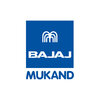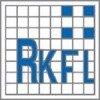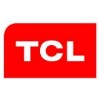Filter interviews by
Steel And Industrial Forgings Graduate Apprenticeship Trainee Interview Questions and Answers
Steel And Industrial Forgings Graduate Apprenticeship Trainee Interview Experiences
1 interview found
I applied via Referral and was interviewed in Oct 2021. There were 2 interview rounds.

(3 Questions)
- Q1. Which happens first stress or strain
- Ans.
Stress happens before strain.
Stress is the force applied to an object, while strain is the deformation that results from that force.
Stress causes strain, so stress must happen first.
For example, if you pull on a rubber band, the stress you apply causes the rubber band to stretch, which is the strain.
In engineering, stress and strain are important concepts for designing structures that can withstand external forces.
- Q2. Different types of forging and applications
- Ans.
Forging is a process of shaping metal by applying compressive force. Different types of forging are used for different applications.
Open-die forging: used for large parts like shafts and cylinders
Closed-die forging: used for small parts like bolts and fittings
Roll forging: used for long parts like rails and bars
Impression-die forging: used for complex shapes like gears and engine parts
Precision forging: used for high-p
- Q3. Different types of weldings and its applications
- Ans.
Different types of welding include MIG, TIG, Stick, and Flux-Cored welding, each with unique applications.
MIG welding is commonly used for automotive and construction applications.
TIG welding is often used for precision work on thin materials like aluminum.
Stick welding is a versatile method used for welding thicker materials in outdoor environments.
Flux-Cored welding is ideal for welding in windy or dirty conditions.
Interview Preparation Tips
Top trending discussions






Interview questions from similar companies

I applied via Indeed and was interviewed in Jan 2024. There was 1 interview round.
(5 Questions)
- Q1. Normal plant process of ammonia
- Ans.
Ammonia is produced through the Haber process, which involves reacting nitrogen and hydrogen at high temperature and pressure.
Nitrogen and hydrogen are reacted in a 1:3 ratio
The reaction is catalyzed by iron
The process is carried out at high temperature (400-500°C) and high pressure (200-400 atm)
Ammonia is formed as a gas and can be liquefied for storage and transportation
- Q2. Normal DM plant process and perameter
- Ans.
DM plant process involves removal of impurities from water using ion exchange process. Parameters include flow rate, pH, conductivity, etc.
DM plant stands for Deionization plant
Water passes through ion exchange resin beds to remove impurities
Parameters to monitor include flow rate, pH level, conductivity, pressure, temperature
Regular regeneration of resin beds is necessary for efficient operation
- Q3. Urea plant process and perameter distillation feed number of plat
- Ans.
Urea plant process involves distillation feed with specific parameters and number of plates.
Urea plant process includes synthesis of ammonia and carbon dioxide to produce urea.
Distillation feed in urea plant is typically a mixture of urea, water, and other byproducts.
The number of plates in distillation column depends on the desired purity of urea product.
Efficient separation of urea from impurities is crucial for high
- Q4. Type of compressor pirling tower height
- Ans.
The type of compressor used determines the height of the piling tower.
The height of the piling tower will vary based on the type of compressor being used.
For example, a centrifugal compressor may require a taller piling tower compared to a reciprocating compressor.
Factors such as the volume of air being compressed and the pressure requirements will also impact the tower height.
- Q5. Type of convear and neem coted urea solution
- Ans.
The type of conveyor used for transporting neem coated urea solution can vary depending on the specific requirements of the application.
Conveyors commonly used for transporting liquids include belt conveyors, screw conveyors, and pneumatic conveyors.
Neem coated urea solution may require a conveyor with special lining or material to prevent corrosion or contamination.
The choice of conveyor will depend on factors such as...
Interview Preparation Tips

Ammonia plant and power plant discussion
(1 Question)
- Q1. Reforms tub material ,reformer outlet process gas composition, type of steem ,low pressure steem use in equipment, gv solution composition, DM water process, DM water composition, ammonical water purifi...
Interview Preparation Tips

I applied via Recruitment Consulltant and was interviewed before Apr 2023. There were 2 interview rounds.
(1 Question)
- Q1. Chemical engineer question
(1 Question)
- Q1. Heat transfer mass transfer fluid mechanics chemical reaction engineering thermodynamics
Steel And Industrial Forgings Interview FAQs
Tell us how to improve this page.
Interview Questions for Popular Designations
- Apprenticeship Trainee Interview Questions
- Apprenticeship Training Mechanical Engineer Interview Questions
- Apprenticeship Maintenance Engineer Interview Questions
- Diploma Apprenticeship Assistant Interview Questions
- Apprentice Interview Questions
- Technician Apprenticeship Interview Questions
- Apprentice Trainee Interview Questions
- Graduate Apprentice Trainee Interview Questions
- Show more
Interview Questions from Similar Companies

|
Graduate Apprentice
7
salaries
| ₹0.6 L/yr - ₹2.2 L/yr |
|
CMA Trainee
5
salaries
| ₹0.9 L/yr - ₹1.2 L/yr |
|
Graduate Engineer Trainee (Get)
5
salaries
| ₹0.6 L/yr - ₹2 L/yr |
|
Mechanical Engineer
4
salaries
| ₹1 L/yr - ₹2.7 L/yr |
|
Welder
4
salaries
| ₹2.1 L/yr - ₹5 L/yr |

Bharat Forge

Mukand Limited

Ratnamani Metals and Tubes

Sanghvi Forging & Engineering
- Home >
- Interviews >
- Steel And Industrial Forgings Interview Questions >
- Steel And Industrial Forgings Graduate Apprenticeship Trainee Interview Questions












